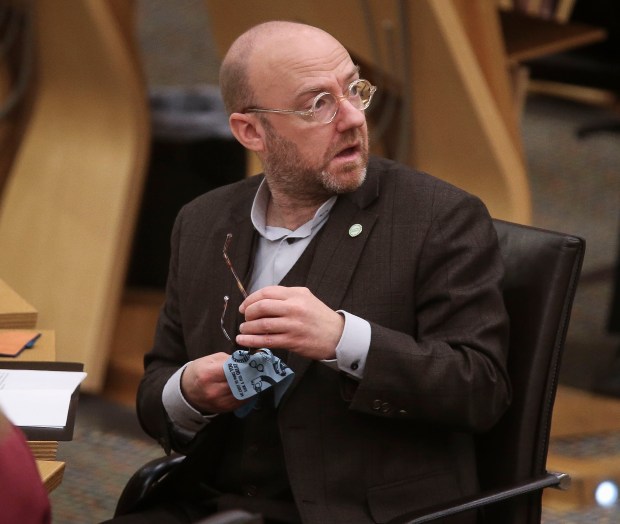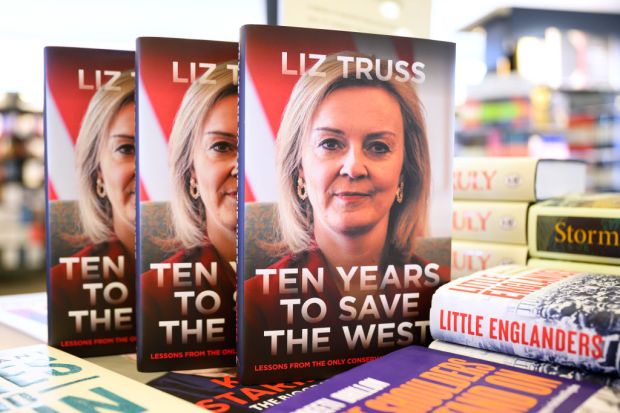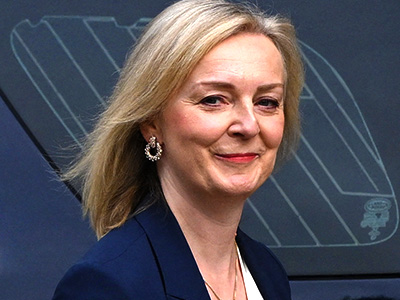Much to the chagrin of colleagues, friends and ex-friends, I’ve spent the past few years raising the alarm about how Scottish devolution is gradually eroding the Union.
I’ve noted how the devolution settlement was devised as a fiefdom by arrogant New Labour architects who, unable to imagine anyone else coming to power, failed to include sufficient checks and balances. I’ve catalogued how the SNP has seized on this flaw to transform the Scottish Government into a permanent, taxpayer-funded campaign against the UK state. I’ve remonstrated about Westminster’s failure to notice the problem and its unwillingness to do something about it. I’ve proposed various models for reforming devolution so that it returns to its original purpose and becomes less of a threat to the Union.
Nicola Sturgeon’s decision to press ahead with a unilateral referendum — with a pitstop at the Supreme Court in October — is mostly a diversion to appease her party’s grassroots but it does helpfully illustrate the points I’ve been making. Less encouragingly, neither Downing Street, nor Whitehall, nor Parliament appear to be taking seriously a devolved administration openly challenging Westminster’s sovereign authority.
So I ought to be songful of heart over Liz Truss’s comments to the Sunday Telegraph. The frontrunner told the paper:
‘Scottish Nationalists accepted that their referendum was a once in a generation opportunity, and I will hold them to that. I will work to strengthen our whole Union. As prime minister, I will do what is necessary and right to defend our Union, just as I have already done on the Northern Ireland Protocol. The SNP lost the 2014 referendum and Nicola Sturgeon is now leading a campaign of deception to steamroller the UK and break up the Union. But I am completely clear that there will be no second Scottish independence referendum on my watch.’
Truss turned her attention to the draft legislation the Scottish Government intends to use to carry out its rebel referendum:
‘The Scottish Independence Referendum Bill isn’t legal and will be invalidated if passed by the Scottish Parliament. When Westminster devolved power to Scotland, it did not include the ability to hold valid referenda to break up the Union. Any Scotland independence referendum would need to be authorised by the Westminster parliament. If I become prime minister, I would not grant that authority.’
This is by far the strongest statement on the Union we have heard from either of the two remaining candidates for the Conservative leadership. In fact, it is the strongest statement we have heard from any cabinet minister, including Boris Johnson. If your average Scottish No-voter, and especially your average Scottish Tory voter, were to set out their view on another referendum, Truss’s statement is more or less exactly what they would say.
 Liz Truss (Getty Images)
Liz Truss (Getty Images)
The Scottish Tories, like the old Unionist Party, are really a centre-, rather than centre-right, party. That ought to have been a hurdle for Truss, a modern, metropolitan Thatcherite. But when it comes to the number one priority of Scottish Tories — the Union — she has been unequivocal during this contest. Scottish Tory activists I speak to cite The Spectator hustings (unprompted and, I assure you, unpaid) as helping to clarify their decision on who to vote for. These were the head-to-head interviews in which Isabel Hardman asked each candidate whether they would allow another independence referendum. As I observed at the time, Rishi Sunak’s answer was a long, halting, awkward excursion that took in the Supreme Court, the economy, his own feelings about the Union and the duties of the UK and Scottish governments. Liz Truss’s answer was: ‘No.’
Scottish Tory converts to Truss will appreciate her comment to the Telegraph that ‘if Scotland were to leave the United Kingdom, we would all be worse off — Scottish and English, Welsh and Northern Irish alike. I will always stand up for Scotland as a vital part of the UK. If I am fortunate enough to be elected, it will be as prime minister for the whole United Kingdom. I intend to keep it that way.’
Westminster’s standard operating procedure when it comes to Scottish independence is to run a mile from the subject. This only plays into the SNP’s hands. The Scottish Government tells Scots independence would bring them prosperity, social equality and self-determination. The UK Government keeps trying to avoid the subject. It is a one-sided war, and one that Westminster is losing.
Insofar as it hints at a recognition of these facts and the need for Westminster to begin fighting back, Truss’s stance is very much to be welcomed. However, in fine Scottish tradition, rather than be grateful for what I’ve been given, allow me to present a list of grievances. Well, constructive criticisms.
1) Stop saying things like, ‘If Scotland were to leave the United Kingdom…’ Every time you do, you concede it as a possibility. There is significant separatist sentiment in Bavaria. When was the last time you heard Olaf Scholz say, ‘If Bavaria were to leave Germany…’?
2) Drop the ‘once in a generation’ chat. It’s fun to remind the nationalists of their own words but Unionists are beginning to talk about this as though it were a constitutional provision. ‘Once in a generation’ was the SNP’s rhetoric, not Westminster’s, and it is strategically foolhardy to adopt it as a standard. Eventually a generation will pass and when it does Westminster will rue giving legitimacy to this notion. The pro-UK position is this: there was a referendum in 2014, the result was clear, the matter is settled, there will be no further referendums.
3) Every prime minister promises to ‘strengthen our whole Union’, then they spend most of their tenure neglecting it. They get caught up in the politics and priorities of Westminster, in which the Union does not feature prominently. If you become prime minister, you need to have a detailed plan going in, not just for strengthening the Union but for making sure it remains a priority on the government’s agenda. You also need to appoint the right people at ministerial and special advisor level and put an end to the failed ‘love-bombing’ strategy.
4) Nicola Sturgeon is indeed ‘leading a campaign of deception to steamroller the UK and break up the Union’, and she’s using the devolved Scottish Government, an institution of the UK state, to achieve it. What are you going to do about that?
5) You are right to say Westminster did not devolve ‘the ability to hold valid referenda to break up the Union’ and presumably the Supreme Court will hold the same when it considers the matter. But what if it doesn’t? There should be emergency legislation ready to go to amend the Scotland Act in the event the court throws everyone a wild card. And even if the justices uphold the conventional interpretation of the Act, the fact this charade has been allowed to get this far underscores the need for the legislation to be tightened up.
6) The plural of referendum is ‘referendums’, not ‘referenda’. Of course, the proper Unionist position is that there is no plural of referendum.
Got something to add? Join the discussion and comment below.
Get 10 issues for just $10
Subscribe to The Spectator Australia today for the next 10 magazine issues, plus full online access, for just $10.




















Comments
Don't miss out
Join the conversation with other Spectator Australia readers. Subscribe to leave a comment.
SUBSCRIBEAlready a subscriber? Log in